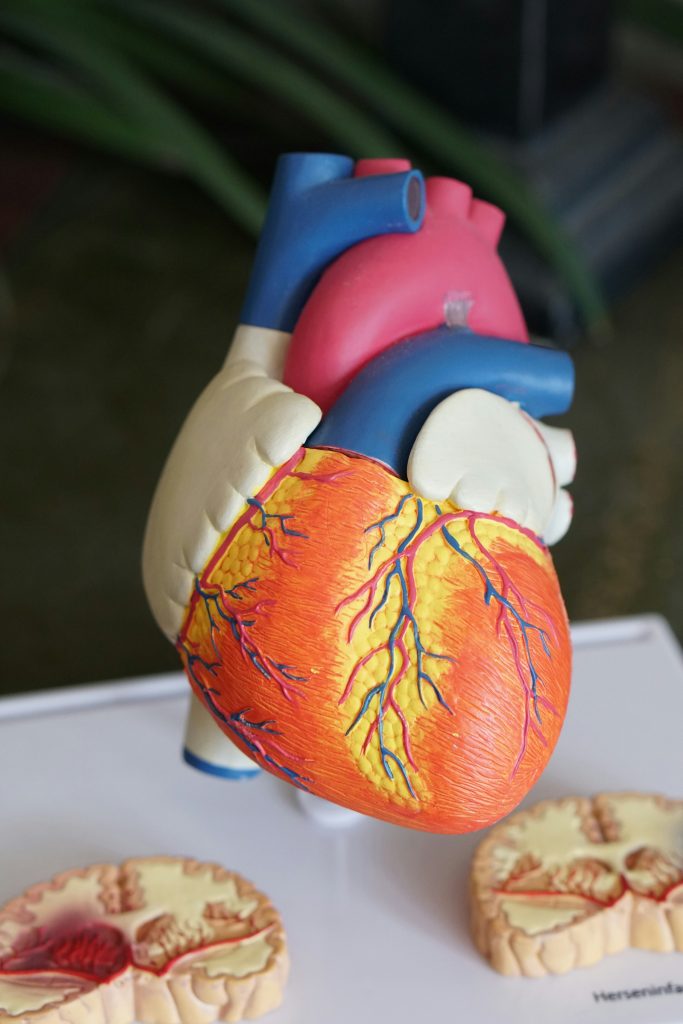Ad Blocker Detected
Our website is made possible by displaying online advertisements to our visitors. Please consider supporting us by disabling your ad blocker.
Are you looking to improve your digestion and overall gut health? Look no further than fibers supplements! These incredible products are specially formulated to provide your body with the essential fiber it needs to keep things running smoothly. Whether you struggle with constipation, want to enhance regularity, or simply want to promote a healthy gut, fibers supplements are your new best friend. With their convenient and easy-to-use formats, incorporating them into your daily routine is a breeze. Say goodbye to digestion woes and say hello to a happier, healthier you with fibers supplements!

This image is property of images.unsplash.com.
What are Fiber Supplements
Definition
Fiber supplements are dietary supplements that are designed to provide an additional source of fiber to your diet. Fiber is an essential nutrient that is found in plant-based foods, such as fruits, vegetables, whole grains, and legumes. It is known for its ability to promote healthy digestion and regulate bowel movements. However, many people struggle to consume an adequate amount of fiber through their diet alone. Fiber supplements offer a convenient and reliable way to increase your fiber intake and enjoy the associated health benefits.
Types of Fiber Supplements
There are several types of fiber supplements available on the market. Each type of fiber supplement has its own unique properties and benefits. The most common types of fiber supplements include:
-
Psyllium Husk: Psyllium husk is a natural plant fiber that is derived from the seeds of the Plantago ovata plant. It is known for its high soluble fiber content, which helps to soften stool and promote regular bowel movements. Psyllium husk is available in various forms, such as powder, capsules, and chewable tablets.
-
Inulin: Inulin is a soluble fiber that is found in many fruits and vegetables, such as onions, garlic, and bananas. It is a prebiotic fiber, which means it acts as a food source for the beneficial bacteria in your gut. Inulin supplements are available in powder or capsule form.
-
Methylcellulose: Methylcellulose is a synthetic fiber that is derived from cellulose, which is a plant-based material. It is often used as a thickening agent in food products and has a high water-holding capacity. Methylcellulose supplements are available in powdered form, which can be mixed with water or other liquids.
-
Wheat Dextrin: Wheat dextrin is a soluble fiber that is derived from the starch of wheat. It is commonly used as a food additive to improve the texture and stability of processed foods. Wheat dextrin supplements are available in powder form and can be easily mixed with water or other beverages.
How Fiber Supplements Work
Fiber supplements work by providing a concentrated source of dietary fiber to your body. Fiber is not digested by the body like other nutrients, such as carbohydrates, proteins, and fats. Instead, it passes through the digestive system largely intact, adding bulk to the stool and promoting regular bowel movements.
When you consume fiber supplements, the soluble fiber absorbs water and forms a gel-like substance in the digestive tract. This gel helps to soften stool, making it easier to pass. Additionally, soluble fiber acts as a prebiotic, providing nourishment for the beneficial bacteria in your gut and promoting a healthy balance of gut flora.
Insoluble fiber, on the other hand, adds bulk to the stool and helps to prevent constipation. By increasing the volume of stool, insoluble fiber promotes regular bowel movements and helps to maintain a healthy digestive system.
Benefits of Fiber Supplements
Improved Digestion
One of the key benefits of fiber supplements is their ability to improve digestion. Fiber promotes regular bowel movements, preventing constipation and maintaining a healthy digestive system. It adds bulk to the stool, making it easier to pass, and can help to alleviate symptoms of gastrointestinal disorders, such as irritable bowel syndrome (IBS).
Weight Management
Fiber supplements can also be beneficial for weight management. High-fiber foods typically require more chewing and take longer to digest, which can help to promote feelings of fullness and reduce appetite. By including fiber supplements in your diet, you may be less likely to overeat and may find it easier to maintain a healthy weight.
Lower Cholesterol Levels
Another important benefit of fiber supplements is their potential to lower cholesterol levels. Soluble fiber has been shown to help reduce levels of LDL cholesterol, also known as “bad” cholesterol, by binding to cholesterol in the digestive system and preventing its absorption into the bloodstream. By incorporating fiber supplements into your diet, you may be able to improve your cholesterol profile and reduce your risk of heart disease.

This image is property of images.unsplash.com.
Recommended Fiber Intake
Daily Recommended Fiber Intake
The daily recommended fiber intake varies depending on age, gender, and overall health. The American Heart Association (AHA) recommends a daily fiber intake of 25 grams for women and 38 grams for men under the age of 50. For adults over the age of 50, the recommendation decreases to 21 grams for women and 30 grams for men. However, most people do not consume enough fiber in their diet and may benefit from incorporating fiber supplements to meet their daily recommended intake.
Fiber Intake for Different Age Groups
It’s important to note that the fiber needs of children and adolescents may differ from those of adults. The Academy of Nutrition and Dietetics provides the following guidelines for daily fiber intake in children and adolescents:
- 1 to 3 years: 19 grams for boys and girls
- 4 to 8 years: 25 grams for boys and girls
- 9 to 13 years: 31 grams for boys, 26 grams for girls
- 14 to 18 years: 38 grams for boys, 26 grams for girls
If you have specific dietary requirements or any underlying health conditions, it is always recommended to consult with a healthcare professional to determine the appropriate daily fiber intake for your individual needs.
Choosing the Right Fiber Supplement
Considerations Before Choosing
Before choosing a fiber supplement, it is important to consider your specific dietary needs and preferences. Some key factors to consider include:
-
Allergies or Sensitivities: If you have any known allergies or sensitivities to certain ingredients, it is important to check the label of the fiber supplement to ensure it does not contain any allergens or irritants.
-
Digestive Health: If you have any digestive conditions, such as irritable bowel syndrome or inflammatory bowel disease, you may want to choose a fiber supplement that is easy to digest and gentle on the stomach.
-
Lifestyle and Convenience: Consider your lifestyle and how you plan to incorporate the fiber supplement into your daily routine. If you prefer a more convenient option, you may opt for a fiber supplement in capsule or tablet form.
-
Taste and Texture: Some fiber supplements may have a distinct taste or texture that may not be appealing to everyone. Consider your taste preferences and choose a fiber supplement that you will enjoy consuming.
Types of Fiber in Supplements
Fiber supplements can be classified into two broad categories based on the type of fiber they contain: soluble fiber and insoluble fiber.
-
Soluble Fiber: Soluble fiber dissolves in water and forms a gel-like substance in the digestive tract. It is found in foods such as oats, apples, and beans. Soluble fiber supplements, such as psyllium husk and inulin, are beneficial for promoting regular bowel movements and improving digestion.
-
Insoluble Fiber: Insoluble fiber does not dissolve in water and adds bulk to the stool. It is found in foods such as whole grains, nuts, and seeds. Insoluble fiber supplements, such as wheat dextrin, can help prevent constipation and maintain a healthy digestive system.
Different fiber supplements may contain a combination of soluble and insoluble fibers, so it’s important to read the labels and choose the supplement that best meets your dietary needs.
Dosage and Instructions
When choosing a fiber supplement, it is essential to follow the recommended dosage and instructions provided by the manufacturer or healthcare professional. Fiber supplements should be taken with plenty of water to help prevent gastrointestinal discomfort and ensure proper absorption.
Start with a low dosage and gradually increase it over time to allow your body to adjust to the increased fiber intake. This helps to minimize any potential digestive discomfort that may arise from a sudden increase in fiber consumption.

This image is property of images.unsplash.com.
Common Types of Fiber Supplements
Psyllium Husk
Psyllium husk is one of the most popular and widely used fiber supplements. It is derived from the seeds of the Plantago ovata plant and is known for its high soluble fiber content. Psyllium husk supplements are available in various forms, including powder, capsules, and chewable tablets. They are often used to relieve constipation, improve digestion, and promote regular bowel movements.
Inulin
Inulin is a soluble fiber that is found in many fruits and vegetables, such as onions, garlic, and bananas. Inulin supplements are available in powder or capsule form and are known for their prebiotic properties. They provide nourishment for the beneficial bacteria in the gut and help to promote a healthy balance of gut flora. Inulin supplements are often used to support digestive health and improve overall gut function.
Methylcellulose
Methylcellulose is a synthetic fiber that is derived from cellulose, a plant-based material. It is often used as a thickening agent in food products and has a high water-holding capacity. Methylcellulose supplements are available in powdered form, which can be easily mixed with water or other liquids. They are commonly used to relieve symptoms of constipation and promote regular bowel movements.
Wheat Dextrin
Wheat dextrin is a soluble fiber that is derived from the starch of wheat. It is commonly used as a food additive to improve the texture and stability of processed foods. Wheat dextrin supplements are available in powder form and can be easily mixed with water or other beverages. They are often used to support digestive health and help maintain regularity.
Potential Side Effects
Digestive Discomfort
While fiber supplements are generally safe for most people, they can cause digestive discomfort, especially when taken in high doses. Some common side effects may include bloating, gas, and abdominal discomfort. To minimize these side effects, it is recommended to start with a low dose and gradually increase it over time. Additionally, it is important to drink plenty of water when taking fiber supplements to help prevent these discomforts.
Allergic Reactions
In rare cases, individuals may experience allergic reactions to certain types of fiber supplements. This can manifest as itching, hives, swelling, or difficulty breathing. If you experience any symptoms of an allergic reaction after taking a fiber supplement, it is important to seek medical attention immediately.
Interference with Medications
Certain medications may interact with fiber supplements, affecting their absorption or effectiveness. It is important to consult with a healthcare professional or pharmacist before starting any new fiber supplement, especially if you are currently taking prescription medications or have any underlying medical conditions.

How to Incorporate Fiber Supplements into Your Diet
Consulting a Healthcare Professional
Before incorporating fiber supplements into your diet, it is always a good idea to consult with a healthcare professional, such as a registered dietitian or doctor. They can provide personalized recommendations based on your individual health needs and dietary preferences. They can guide you in choosing the right fiber supplement and help you determine the appropriate dosage for your specific needs.
Increasing Fiber Intake Gradually
To minimize digestive discomfort when incorporating fiber supplements into your diet, it is important to increase your fiber intake gradually. Start with a low dose and gradually increase it over a period of several days or weeks to allow your body to adjust. It is also important to drink plenty of water throughout the day to help prevent constipation and ensure proper digestion.
Alternatives to Fiber Supplements
Natural Sources of Fiber
While fiber supplements can be a convenient way to increase your fiber intake, it is always best to prioritize whole foods as the main source of fiber in your diet. There are many natural sources of fiber that you can incorporate into your meals and snacks. Some examples of high-fiber foods include fruits, vegetables, whole grains, legumes, nuts, and seeds. Aim to include a variety of these foods in your diet to ensure a well-rounded intake of fiber and other important nutrients.
Dietary Changes to Increase Fiber Intake
If you are looking to increase your fiber intake without using supplements, there are several dietary changes you can make. These include:
- Choosing whole grain products instead of refined grains, such as whole wheat bread instead of white bread.
- Including a variety of fruits and vegetables in your meals and snacks.
- Adding legumes, such as beans and lentils, to soups, stews, and salads.
- Incorporating nuts and seeds into your diet, either as a snack or as a topping for salads and yogurt.
By incorporating these dietary changes, you can gradually increase your fiber intake and enjoy the associated health benefits.
Precautions and Considerations
Hydration
When increasing your fiber intake, it is important to drink plenty of water throughout the day. Fiber absorbs water as it moves through the digestive system, and inadequate hydration can lead to constipation and other digestive issues. Aim to drink at least 8 glasses of water per day, or more if you are physically active or live in a hot climate.
Possible Nutrient Absorption Interference
While fiber is an important nutrient, it is important to note that consuming very high amounts of fiber can potentially interfere with the absorption of certain minerals, such as iron, zinc, and calcium. To minimize the risk of nutrient deficiencies, it is important to consume a balanced diet that includes a variety of nutrient-rich foods.
Individual Sensitivities
Some individuals may have specific sensitivities or intolerances to certain types of fiber, such as psyllium husk or wheat dextrin. If you experience any adverse reactions or discomfort after consuming a fiber supplement, it is important to discontinue use and consult with a healthcare professional.
Are Fiber Supplements Necessary if I’m Already Taking Protein Supplements?
Yes, fiber supplements are necessary even if you are already taking the best protein supplements. Fiber aids in digestion and can help prevent constipation. While protein supplements are great for muscle recovery and growth, fiber is essential for overall good health and should be included in your daily routine.
Conclusion
In summary, fiber supplements can be a convenient and effective way to increase your fiber intake and enjoy the associated health benefits. They can improve digestion, aid in weight management, and lower cholesterol levels. When choosing a fiber supplement, it is important to consider your specific dietary needs and preferences. It is recommended to consult with a healthcare professional before starting any new supplement and to increase your fiber intake gradually to minimize any potential digestive discomfort. Additionally, it is important to prioritize whole foods as the main source of fiber in your diet and to make dietary changes to increase fiber intake naturally. Remember to stay hydrated, be mindful of possible nutrient absorption interference, and pay attention to any individual sensitivities. By incorporating fiber supplements and making dietary changes, you can enjoy the benefits of a balanced diet rich in fiber.


